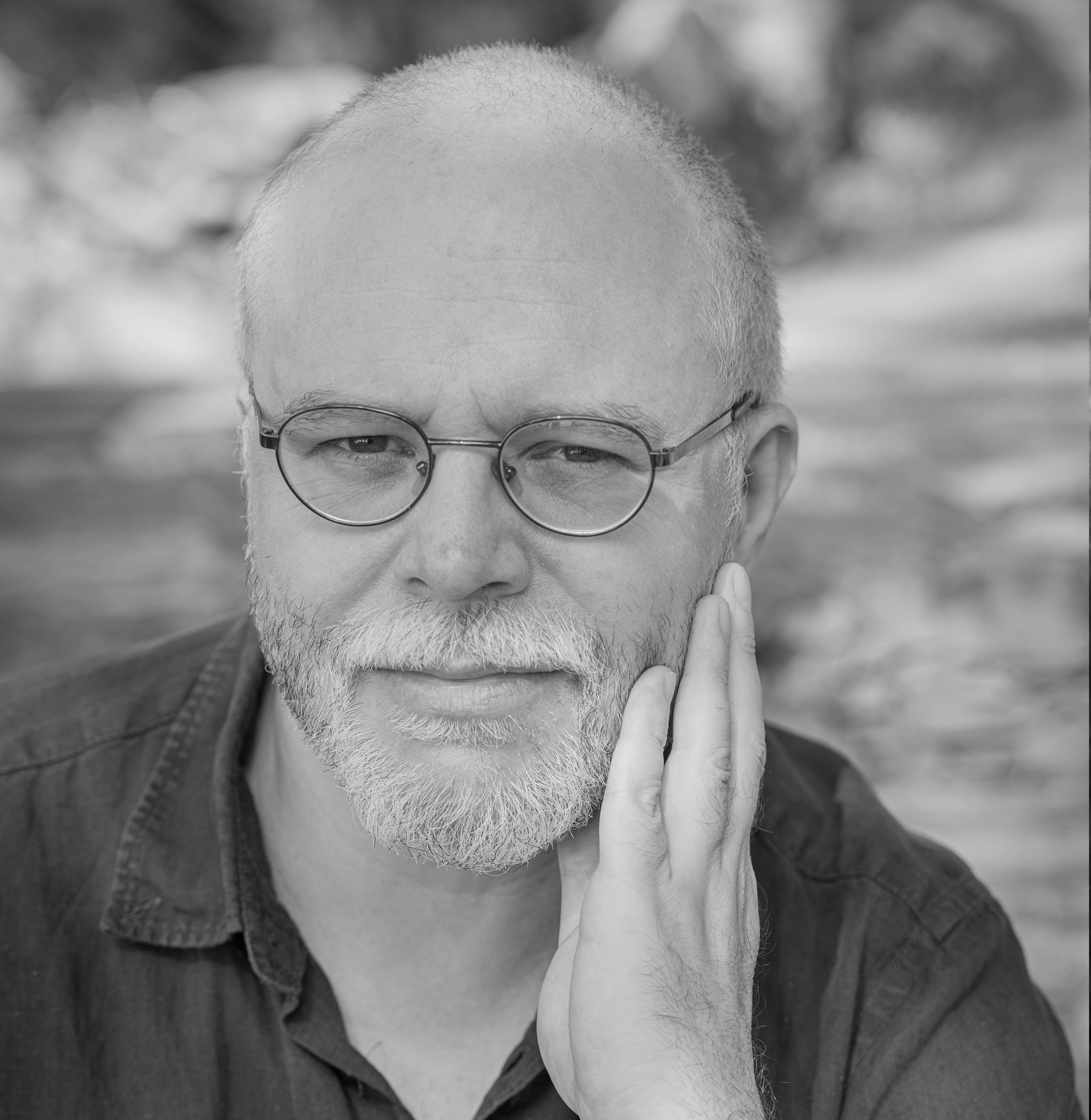Germany’s Jewish Problem
“Wieland Hoban is a candle in the darkness of German discourse on Israel/Palestine.”
—Nathan Thrall, winner of the Pulitzer Prize“Desperately needed in a country where dissident opinions are not only censored but criminalised.”
—Hebh Jamal“Trenchant, perceptive, and timely.”
—Dirk Moses“Arrives like a meteor, signalling hope and the power of thought.”
—Majed Abusalamaabout the bookabout
Since October 2023, the Frankfurt-based Jewish composer and activist Wieland Hoban has traveled the globe rallying opposition to the Gaza genocide. Now, in an urgent collection of writings at once blistering and revelatory, Hoban unravels the cultural neuroses and political cynicism that have made Germany an outlier in its support for Israeli crimes.
From German gentiles confidently charging Israeli Jewish expats with antisemitism, to the German state’s decades-long project to stifle free speech under the guise of combating “antisemitism,” to German officials mobilising their historical responsibility for one genocide to justify participating in another—Hoban guides us through the grotesqueries of German “memory culture” and shows their lethal consequences.
As the chair of a German-Jewish peace group whose bank accounts were repeatedly frozen and whose members have been arrested on Gaza solidarity protests, Hoban is uniquely placed to expose the oddities and outrages of Germany’s authoritarian turn. He also warns that what begins in Germany doesn’t stay there. From sabotaging international support for a Gaza ceasefire, to deporting foreign nationals on political grounds, to spearheading censorship laws across the EU, Hoban’s diagnosis of German pathologies demonstrates where the ideological weaponization of “antisemitism” can lead.
About The Author / Editor
Preview
In an interview with the Berliner Zeitung in November 2024, Berlin’s chief of police Barbara Slowik spoke about the alleged dangers for Jews in Berlin, referring especially to Palestine-related antisemitic incidents since October 7, 2023. After giving a figure for cases of antisemitic hate speech, she went on to state that most registered acts of violence are directed at the police at or around demonstrations. Since she did not make any obvious separation between such violence (which, as countless videos posted to social media show, is overwhelmingly enacted by the police against demonstrators) and antisemitism, the implication was that such violence towards police was motivated by antisemitism. The weekly paper Die Zeit, which also reported on Slowik’s statements, summarised this in a subheading: ‘Antisemitically motivated violence usually directed at the police’. Reading such a formulation, one could be forgiven for thinking that the Berlin Police are the primary victims of antisemitism. In any normal use of language, of course, antisemitic violence is violence aimed at Jews; because the German discourse has so fully equated opposition to Israel with antisemitism, however, one finds the absurd implication that the police now stand in for Jews as victims of the pro-Palestinian hordes. As for the actual Jews present at such demonstrations, they are very often on the receiving end of police brutality or arbitrary arrests for opposing genocide.
I am proud to call those Jews my comrades. As a member and, since November 2021, chairman of the activist organisation Jewish Voice for a Just Peace in the Middle East (Jüdische Stimme, for short), I’ve experienced the cognitive dissonance and hypocrisy around the entire issue of Jewish identity in Germany at close quarters, especially in connection with the issue of Palestine. I was initially somewhat daunted by the prospect of becoming the group’s chairman; if I had known what would begin unfolding in October 2023—not only in historic Palestine but in Germany too—I would have been far more unnerved.
The articles collected in this book comment on developments in German politics and society over a period of more than four years. As they cycle repeatedly through a cluster of core themes—Palestine, Israel, Jewishness, German memory culture, antisemitism, racism—these interventions also trace a downward spiral, as the public sphere in Germany has become ever more hostile to the universalist, progressive commitments this work expresses. The articles collectively mount an ethnographic investigation that focuses both on escalations of state repression and also on less spectacular, but still contributory dynamics of journalistic fraud or tone-deaf political marketing.
Perhaps the darkest constant running through the book is Israel’s persecution of the Palestinians, culminating since October 2023 in the Gaza genocide. This has been accompanied by ethnic cleansing in the West Bank and depredations in Lebanon and Syria, where Israel swiftly exploited the post-Assad power vacuum to grab land and bully the new rulers, as well as a twelve-day war on Iran. In all these outrages, the German government has been an unflagging and uncritical accomplice. One of the first telephone calls made by the new chancellor-elect Friedrich Merz was to Benjamin Netanyahu, the Israeli prime minister wanted by the International Criminal Court (ICC) on suspicion of crimes against humanity. Merz extended Netanyahu a warm welcome to visit Germany, in defiance of the ICC warrant for his arrest.
Given the dramatic scale of all that has happened in the Middle East since October 7, 2023, it might seem irrelevant to discuss banal German television portrayals of Jewishness or everyday philosemitic projections in German public discourse. Writing in Germany, however, this all forms a crucial part of the picture. The intensification of what is fraudulently referred to as the ‘fight against antisemitism’ through, among other things, parliamentary resolutions in November 2024 and February 2025 (the latter specifically aimed at the education system), has taken opinion-policing—in an entirely literal sense—to new levels, with countless investigations having been initiated based on nothing more than a slogan on a placard or an Instagram post. Although these resolutions, which are officially classified as ‘statements of opinion by the parliament’, have no legal power, the precedent of the 2019 anti-boycott resolution shows that if a policy is consistently implemented, the question of whether it applies de jure or only de facto is largely academic.
Plans to deny German citizenship to immigrants and refugees, or even to strip them of existing citizenship if they express unwelcome views about Israel, are not wholly new, but they are now proclaimed openly even by mainstream politicians. One federal state, Saxony-Anhalt, has introduced the recognition of Israel’s so-called ‘right to exist’ as a precondition for naturalisation in an effort to weed out ‘extremists’. Such measures are clearly driven by a racist, anti-Muslim agenda in which defending Israel and Jews serves as a moral alibi and cynical pretext. This dynamic, which ultimately imperils Jews along with the explicitly targeted minorities, is by no means unique to Germany. Whether it be the use of antisemitism smears to discredit the Jeremy Corbyn movement in Britain and Zohran Mamdani in New York, or the Trump administration wielding the ‘antisemitism’ cudgel to normalise political deportations and batter elite universities, Germany’s warped public discourse now looks less like a freakish outlier than a model.
The German pathologies on these issues, which are deeper and more developed than elsewhere, accordingly merit wider attention. This means looking at the various ways in which the misprocessed past and the abnormal present in German-Jewish relations have contributed to the mess we are witnessing now.
in the media
Germany’s Jewish Problem
“Wieland Hoban is a candle in the darkness of German discourse on Israel/Palestine.”
—Nathan Thrall, winner of the Pulitzer Prize“Desperately needed in a country where dissident opinions are not only censored but criminalised.”
—Hebh Jamal“Trenchant, perceptive, and timely.”
—Dirk Moses“Arrives like a meteor, signalling hope and the power of thought.”
—Majed Abusalamaabout the bookabout
Since October 2023, the Frankfurt-based Jewish composer and activist Wieland Hoban has traveled the globe rallying opposition to the Gaza genocide. Now, in an urgent collection of writings at once blistering and revelatory, Hoban unravels the cultural neuroses and political cynicism that have made Germany an outlier in its support for Israeli crimes.
From German gentiles confidently charging Israeli Jewish expats with antisemitism, to the German state’s decades-long project to stifle free speech under the guise of combating “antisemitism,” to German officials mobilising their historical responsibility for one genocide to justify participating in another—Hoban guides us through the grotesqueries of German “memory culture” and shows their lethal consequences.
As the chair of a German-Jewish peace group whose bank accounts were repeatedly frozen and whose members have been arrested on Gaza solidarity protests, Hoban is uniquely placed to expose the oddities and outrages of Germany’s authoritarian turn. He also warns that what begins in Germany doesn’t stay there. From sabotaging international support for a Gaza ceasefire, to deporting foreign nationals on political grounds, to spearheading censorship laws across the EU, Hoban’s diagnosis of German pathologies demonstrates where the ideological weaponization of “antisemitism” can lead.
About The Author / Editor
Preview
In an interview with the Berliner Zeitung in November 2024, Berlin’s chief of police Barbara Slowik spoke about the alleged dangers for Jews in Berlin, referring especially to Palestine-related antisemitic incidents since October 7, 2023. After giving a figure for cases of antisemitic hate speech, she went on to state that most registered acts of violence are directed at the police at or around demonstrations. Since she did not make any obvious separation between such violence (which, as countless videos posted to social media show, is overwhelmingly enacted by the police against demonstrators) and antisemitism, the implication was that such violence towards police was motivated by antisemitism. The weekly paper Die Zeit, which also reported on Slowik’s statements, summarised this in a subheading: ‘Antisemitically motivated violence usually directed at the police’. Reading such a formulation, one could be forgiven for thinking that the Berlin Police are the primary victims of antisemitism. In any normal use of language, of course, antisemitic violence is violence aimed at Jews; because the German discourse has so fully equated opposition to Israel with antisemitism, however, one finds the absurd implication that the police now stand in for Jews as victims of the pro-Palestinian hordes. As for the actual Jews present at such demonstrations, they are very often on the receiving end of police brutality or arbitrary arrests for opposing genocide.
I am proud to call those Jews my comrades. As a member and, since November 2021, chairman of the activist organisation Jewish Voice for a Just Peace in the Middle East (Jüdische Stimme, for short), I’ve experienced the cognitive dissonance and hypocrisy around the entire issue of Jewish identity in Germany at close quarters, especially in connection with the issue of Palestine. I was initially somewhat daunted by the prospect of becoming the group’s chairman; if I had known what would begin unfolding in October 2023—not only in historic Palestine but in Germany too—I would have been far more unnerved.
The articles collected in this book comment on developments in German politics and society over a period of more than four years. As they cycle repeatedly through a cluster of core themes—Palestine, Israel, Jewishness, German memory culture, antisemitism, racism—these interventions also trace a downward spiral, as the public sphere in Germany has become ever more hostile to the universalist, progressive commitments this work expresses. The articles collectively mount an ethnographic investigation that focuses both on escalations of state repression and also on less spectacular, but still contributory dynamics of journalistic fraud or tone-deaf political marketing.
Perhaps the darkest constant running through the book is Israel’s persecution of the Palestinians, culminating since October 2023 in the Gaza genocide. This has been accompanied by ethnic cleansing in the West Bank and depredations in Lebanon and Syria, where Israel swiftly exploited the post-Assad power vacuum to grab land and bully the new rulers, as well as a twelve-day war on Iran. In all these outrages, the German government has been an unflagging and uncritical accomplice. One of the first telephone calls made by the new chancellor-elect Friedrich Merz was to Benjamin Netanyahu, the Israeli prime minister wanted by the International Criminal Court (ICC) on suspicion of crimes against humanity. Merz extended Netanyahu a warm welcome to visit Germany, in defiance of the ICC warrant for his arrest.
Given the dramatic scale of all that has happened in the Middle East since October 7, 2023, it might seem irrelevant to discuss banal German television portrayals of Jewishness or everyday philosemitic projections in German public discourse. Writing in Germany, however, this all forms a crucial part of the picture. The intensification of what is fraudulently referred to as the ‘fight against antisemitism’ through, among other things, parliamentary resolutions in November 2024 and February 2025 (the latter specifically aimed at the education system), has taken opinion-policing—in an entirely literal sense—to new levels, with countless investigations having been initiated based on nothing more than a slogan on a placard or an Instagram post. Although these resolutions, which are officially classified as ‘statements of opinion by the parliament’, have no legal power, the precedent of the 2019 anti-boycott resolution shows that if a policy is consistently implemented, the question of whether it applies de jure or only de facto is largely academic.
Plans to deny German citizenship to immigrants and refugees, or even to strip them of existing citizenship if they express unwelcome views about Israel, are not wholly new, but they are now proclaimed openly even by mainstream politicians. One federal state, Saxony-Anhalt, has introduced the recognition of Israel’s so-called ‘right to exist’ as a precondition for naturalisation in an effort to weed out ‘extremists’. Such measures are clearly driven by a racist, anti-Muslim agenda in which defending Israel and Jews serves as a moral alibi and cynical pretext. This dynamic, which ultimately imperils Jews along with the explicitly targeted minorities, is by no means unique to Germany. Whether it be the use of antisemitism smears to discredit the Jeremy Corbyn movement in Britain and Zohran Mamdani in New York, or the Trump administration wielding the ‘antisemitism’ cudgel to normalise political deportations and batter elite universities, Germany’s warped public discourse now looks less like a freakish outlier than a model.
The German pathologies on these issues, which are deeper and more developed than elsewhere, accordingly merit wider attention. This means looking at the various ways in which the misprocessed past and the abnormal present in German-Jewish relations have contributed to the mess we are witnessing now.










